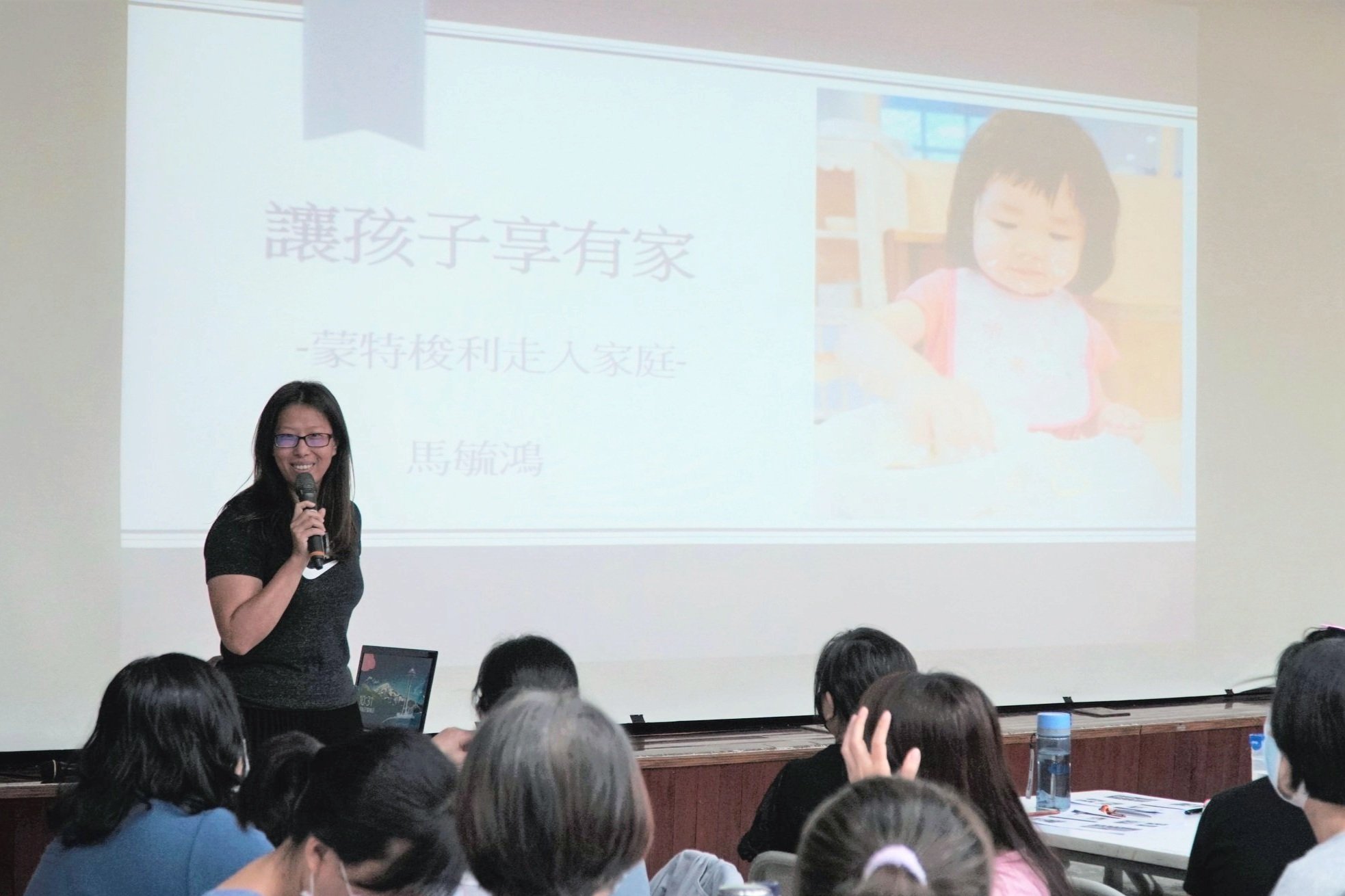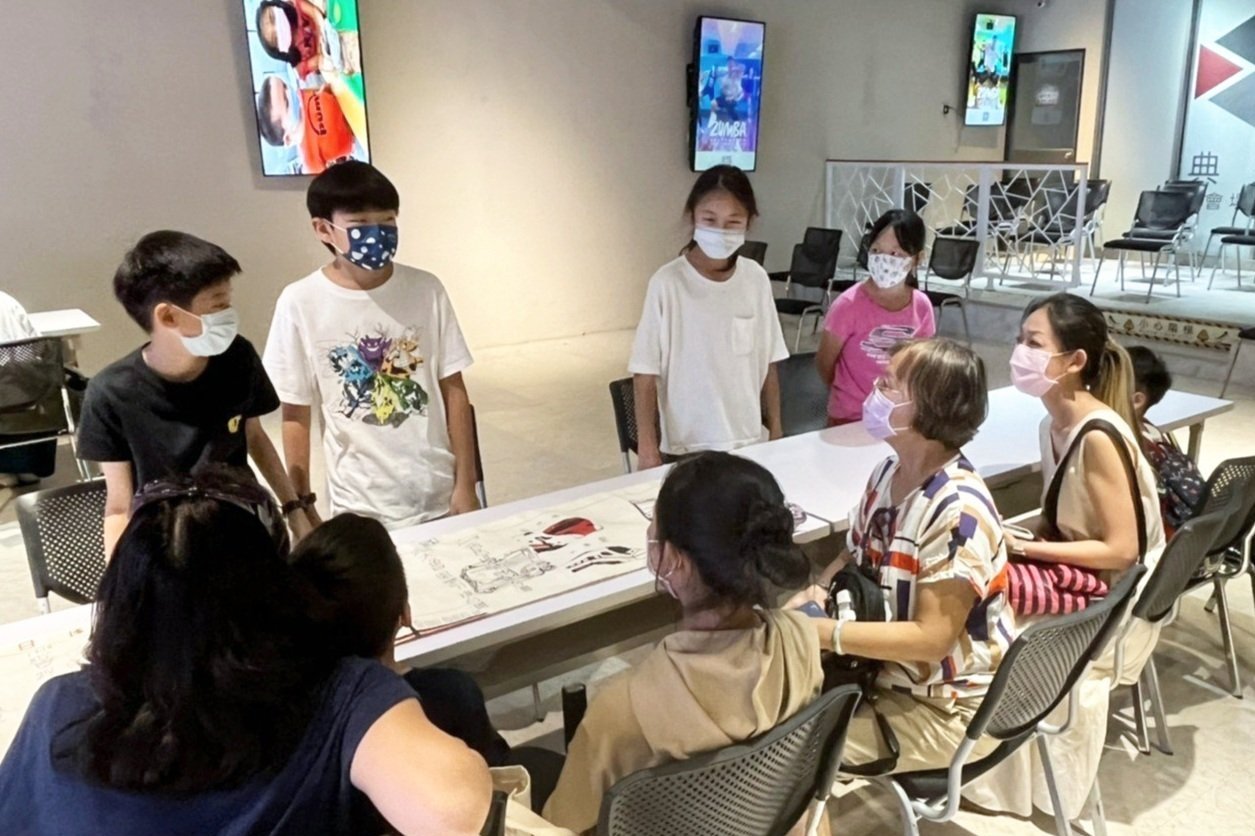Interview with Nicky Ma, Founder of Utopia Montessori School
There are 24 hours in a day. Children prepare for school at 7:00 a.m. and don’t come home till 4 or 5 p.m. Plus, traditionally, junior high school students often have to take supplemental classes, so children end up spending eight to nine hours a day at school.
How can parents better understand their children and build positive school rapport?
Nicky Ma has served in the Montessori educational system for over 20 years. After receiving Montessori teacher training, she founded Utopia Montessori School for children ages 0-12.
She is also the mother of two children. Recently, her son left home for the first time to study at a Montessori middle school in Zhudong. Ms. Ma, who herself has taken on many different roles, is especially attuned to the trilateral relationship between teachers, parents, and schools.
It begins with “us”—becoming an educational partner
Ms. Ma fills multiple roles herself, making her especially attuned to the trilateral relationship between teachers, parents, and schools. She continues to take part in various forms of promotional activities as a means to helping more people to better understand how best to support children’s development.
In the educational arena, Ms. Ma has found that there are two types of parents who pose challenges for schools: one is what the media calls "helicopter parents"—mothers and fathers who hover over their children, solving all of their problems; and, the other type simply hands over all responsibility for educating their children to schools and teachers.
Meals and snacks offer an example of how problems might play out. The former parent-type implores teachers, "My son doesn’t like celery; please don’t include it in his meals," whereas the latter says, "My daughter hates eggplant; please find a way to make her eat it!"
Ms. Ma understands these parent types well and has her own ingenious way of dealing with them. “As long as you grasp that all-important yet invisible thread, then you’ll be okay,” she says.
What is that thread? "The most important thing in education is helping children become themselves!" She notes that difficulties children encounter in a Montessori classroom can range from minor annoyances—a too hot or too cold classroom or picky eating—to major challenges, such as trouble with academic learning or interpersonal conflicts.
All are good learning opportunities, so parents should avoid over-shielding their children and trying to solve all of their problems for them. Instead, step back and wait.
Be with them, but let them deal with the issues they’re facing. Children will learn from experience and gain self-confidence in the process. To allow children to become themselves, first, “parents and teachers must become partners in education.”
Take picky eating, for example. When a child is a fussy eater, parents can tell the teacher, "My son is a finicky eater. How can we solve this problem together?"
Never leave the responsibility of educating children to teachers; rather, form an educational alliance to help children become themselves by working together from different angles. That's what "home-school educational partnership" really means!
Ms. Ma suggests that no matter how busy parents may be, they should take the initiative in communicating with teachers.
Before a child is six years old, one-to-one conversations with the teacher every three months are recommended; after the age six, once every semester is sufficient.
Parents and teachers observe children from different perspectives – parents see only the individual child, while the teacher sees how the child interacts in a group setting.
Whether it be interpersonal problems or academic issues, as long as parents and teachers cooperate, they can bring their different points of view together and create the most conducive environment for their child’s growth.
To build successful "home-school partnerships," parents must also learn and grow along the way; only then can they truly accompany their children at each stage of the journey to self-discovery.
Trust your child and know when to let go
To create successful "home-school partnerships," parents need to learn and grow as well, forming partnerships with the school so that they can bring together two different perspectives as they jointly accompany the children in discovering who they are at various stages of life.
Ms. Ma also shared her son’s feelings about leaving home to attend a boarding Montessori middle school. Her son had always been very close to her, so living away from home turned into his first big challenge.
As a mother and a Montessori educator, Ms. Ma knows that children and teachers need time to adjust. Unexpectedly, after her son had finally assimilated into the community, he came home one day and told his mother about a physical fight he'd gotten into with a classmate. She didn't immediately rush to her son’s teacher seeking blame, nor did she scold her son.
Instead, to understand what happened, she wrote a letter to inform school officials of the children’s fight in the dormitory and reminded the teachers whether they feel they should communicate with the adolescents and resolve the issue together.
Her reaction was due, in part, to the trust she has for Montessori middle schools, but it also derived from her awareness that when issues like interpersonal conflicts or low motivation in learning come up, children observe how adults deal with those problems.
Because of this, children are likely to adopt a similar approach in the future. Parents should realize that whatever happens can be an opportunity for learning—both for parents and children. "In preparing children for the future, parents’ trust is essential!"
Ms. Ma shares her experience as a mother, a teacher, and an educator: "Trust in children can help them become more mature and self-supporting. This trust must be deeply rooted in parents’ hearts so that they can let go of their child’s at the most appropriate time.”
Even more consequential according to Ms. Ma is how “children’s lives are their own. Ultimately, they have to walk their own paths, so, what we can do is help them become independent contributors to society. It’s only when parents can clearly understand this can they truly let go.”
Written by Shu-Mei Weng
Images provided by Utopia Montessori School
Translators: Robert Fox, Jen Hsu/Graduate Institute of Translation and Interpretation, NTNU


